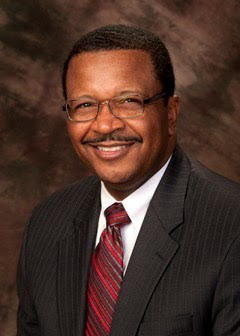Board chair strives to improve transparency
July 31, 2017
DeKALB — Wheeler Coleman, Board of Trustees chair, is pledging his commitment to transparency in hopes of restoring trust in NIU in the aftermath of the investigation of former President Doug Baker.
Coleman, who was voted new Board chair during a June 15 Board of Trustees meeting, said officials need to improve communications to address concerns the NIU community has because of the circumstances surrounding the Office of the Executive Inspector General investigation and Baker’s subsequent resignation.
“We need to make sure everybody understands exactly what we’re doing, how we’re doing it and why we’re doing it,” Coleman said. “We need to find a way to clearly articulate why we’re doing something, the rationale behind it and communicate that as openly as possible onto all of our stakeholders.”
The May 31 OEIG report concluded Baker “mismanaged NIU by allowing the improper hiring of individuals into the affiliate position,” according to the report.
During a June 28 Board of Trustees meeting, acting President Lisa Freeman also made a commitment to transparency and rebuilding trust in the leadership.
“This is an inflection point for the university,” Freeman said in the June 28 Board meeting. “Job one will be to rebuild trust in our leadership among our faculty and staff and across the larger university community. This isn’t going to happen with words. It will only happen with actions and it will take time.”
Lessons learned from OEIG investigation
Coleman said there will be certain situations in which officials will be prohibited from speaking publicly — for example, legal negotiations or lawsuits. Another situation from which officials were prohibited to speak about was the OEIG’s investigation of Baker. While it appeared officials weren’t being transparent during this process, in reality, they were legally prohibited from discussing it, Coleman said.
Being able to discuss it openly now, Coleman said there are many lessons to be learned in the aftermath of the investigation.
“I’m personally looking at the administration and saying ‘we need to be crystal clear about our policies, our guidelines and state laws, and we need to make sure we follow them,” Coleman said. “We have to rebuild trust, and we have to rebuild the credibility of the institution. I don’t believe any actions that were performed in the past were done out of malice. I think they were done out of carelessness, of the lack of procedures, a lack of policy and in some cases, following them.”
Coleman said while Baker had good intentions, there were “big, big mistakes” made, and the goal is to prevent them from happening in the future.
Coleman said an important point he wants to make to the NIU community in the aftermath of the OEIG investigation is officials are not going to tolerate the breaking of rules.
He also said the Board was working to address their concerns regarding the OEIG investigation. This included countless meetings between trustees and Baker to address their concerns, yet some people may have perceived their silence as a lack of action. He said that was not the case.
“I felt that we were like secret agents … quietly doing things and working through people, but we weren’t vocal about it, so no one had a good understanding of where we stood, what we were concerned about and what we were trying to address,” Coleman said. “I think, as a leadership team within the Board … we’ve got to do that differently in the future.”
Part of that process entails the Board making themselves more accessible than they have been in the past.
“As a Board, we’re going to be a little more vocal,” Coleman said.
Plans to improve communication
Coleman said he plans to make himself available to media outlets as much as he can. There are other policies the Board is working on to improve transparency between the Board and the NIU community.
He said while there is no policy in place that prohibits the Board from speaking to the press, the practice of previous Boards has not entailed actively issuing press releases or talking to the press.
“We’re going to change that practice going forward,” Coleman said. “There’s no reason why we shouldn’t be talking to the press. I don’t know why the practice occurred in the past; I don’t know if it was concern about fairness, or I don’t know if it’s concern about being misquoted. But I think we’ve got to find a way to be accessible to the press.”
Coleman said the Board does have oversight responsibilities, with the president and their administration handling the day-to-day operations. He said this may have played a role in previous trustees being apprehensive about speaking out publicly.
“We don’t want to interfere with the day-to-day operations of the university,” said Coleman. “It is Dr. Freeman, or the president and all their executives, to run the day-to-day operations of the institution with oversight from the board, so we don’t want to overstep our boundary. However, I personally believe we’ve got to be a little more vocal than we have been in the past.”







